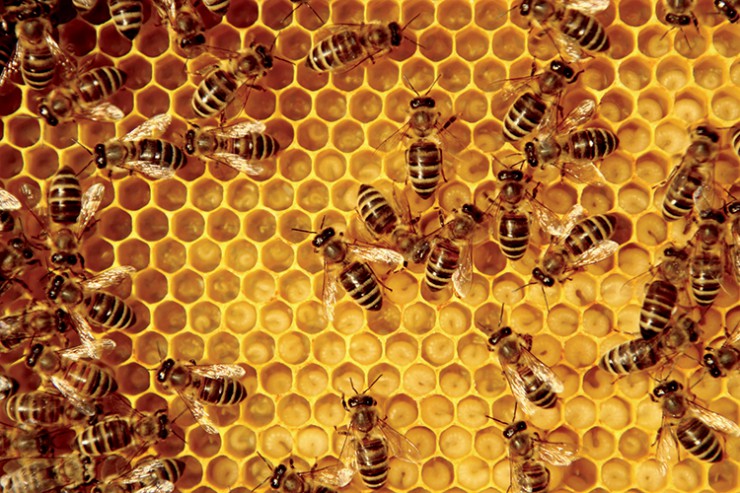
Utah honey is truly liquid gold. Traded for currency by early settlers, honey remains a prized commodity to this day. The state’s arid, desert climate lends itself to the extra sweet nature of the honey.
“Utah’s honey usually has a water moisture percentage of 12.5 percent to 12.9 percent, while commercial honey contains 18 percent,” says Clint Burfitt, state entomologist. “Less water means the honey is sweeter.”
In addition to sweetening our lives, honeybees play an important role in agriculture production.
“Honeybees are used as commercial pollinators,” Burfitt says. “About 80 percent of the food we eat is borne on the backs of honeybees.”
The agriculture industry relies on honeybees to pollinate their crops, making the total economic impact of honeybees approximately $4 million annually.
Honeybee experts work tirelessly to protect these vital colonies.
“In Utah, we have partnerships between academic researchers, state government and private beekeepers,” Burfitt says. “As a result, we have a vibrant research community.”
Whether you are spreading honey on a piece of toast or enjoying local produce made possible by pollination, you can thank Utah’s hardest working citizens, the honeybees.